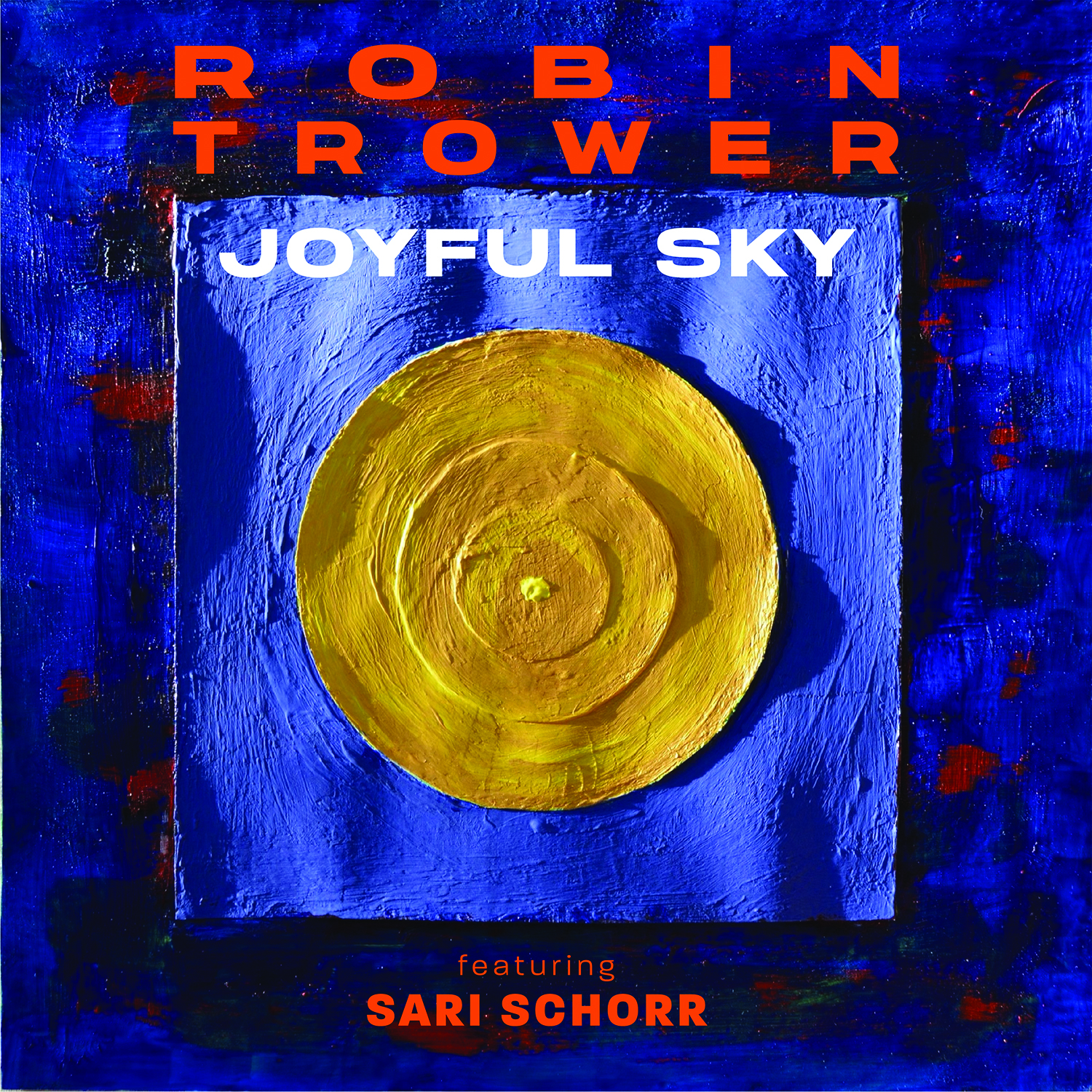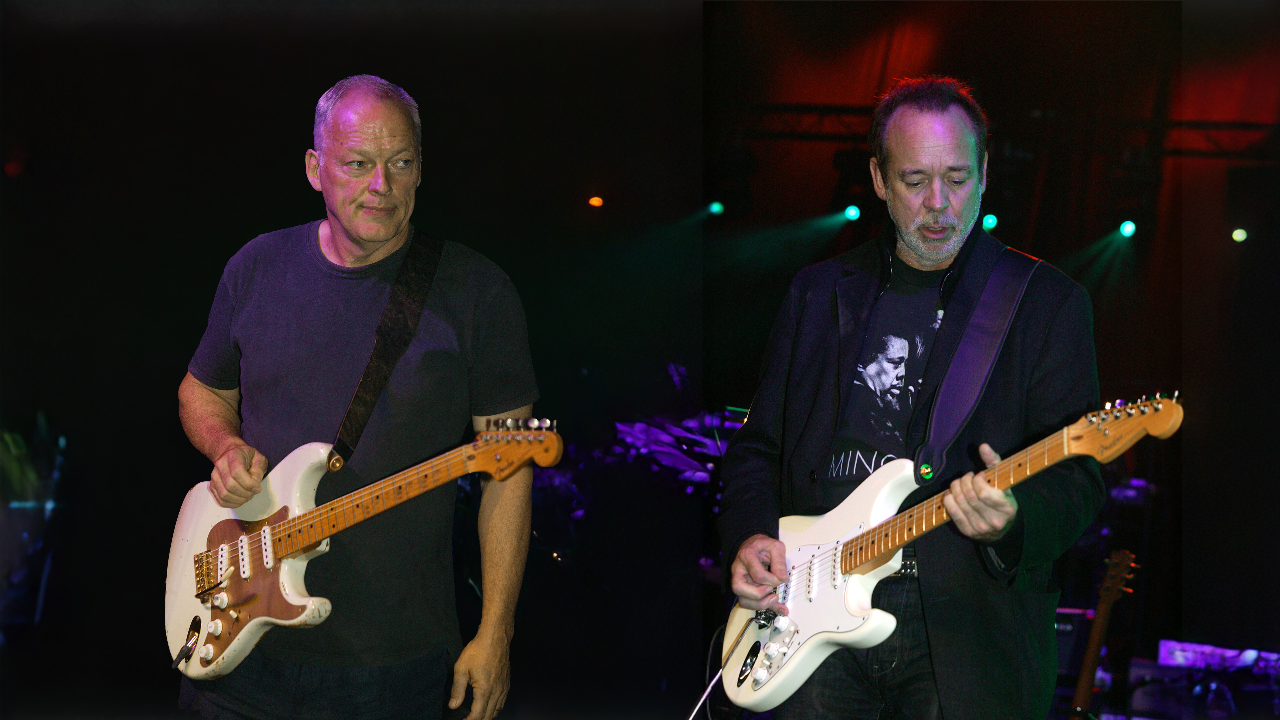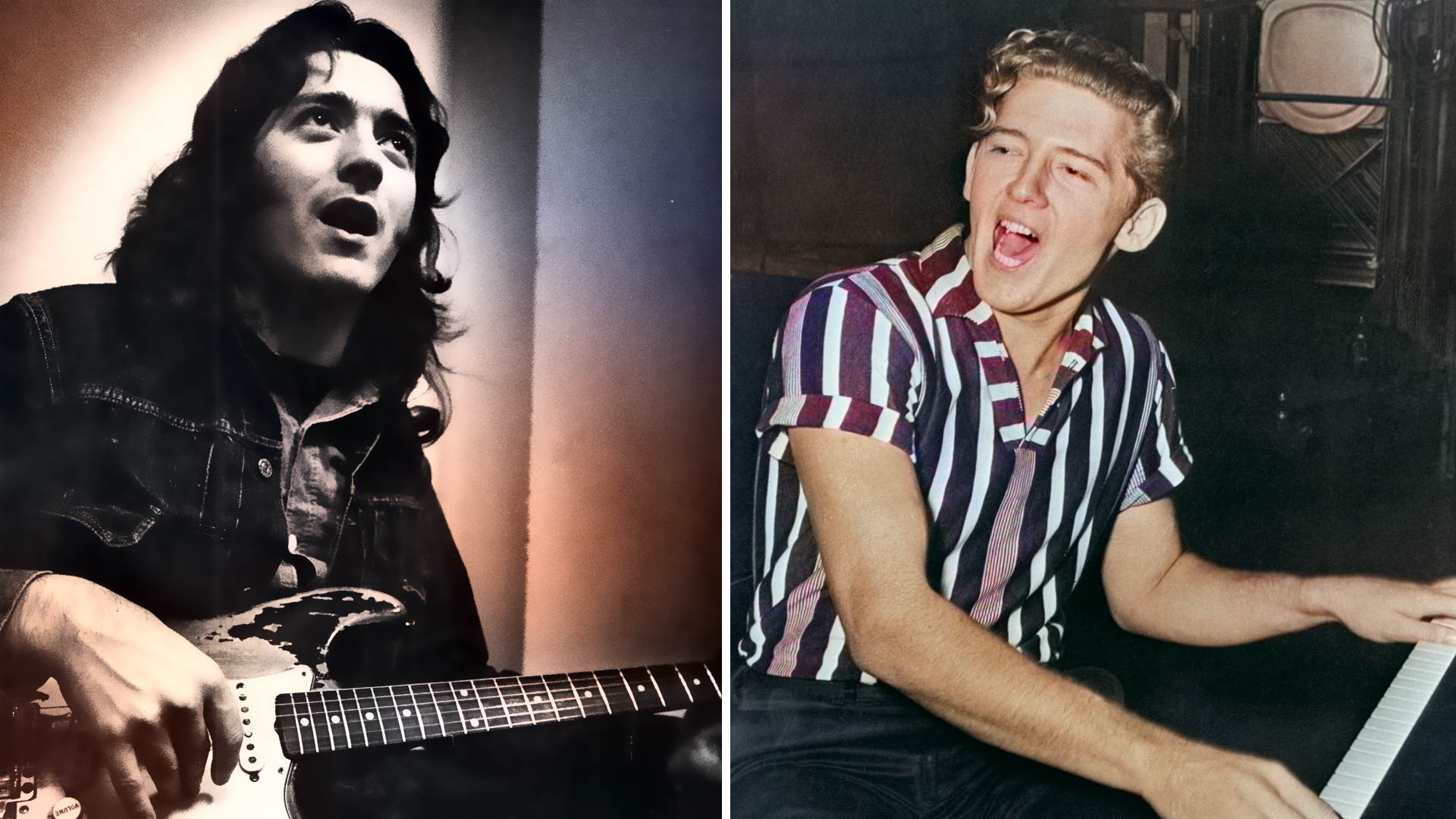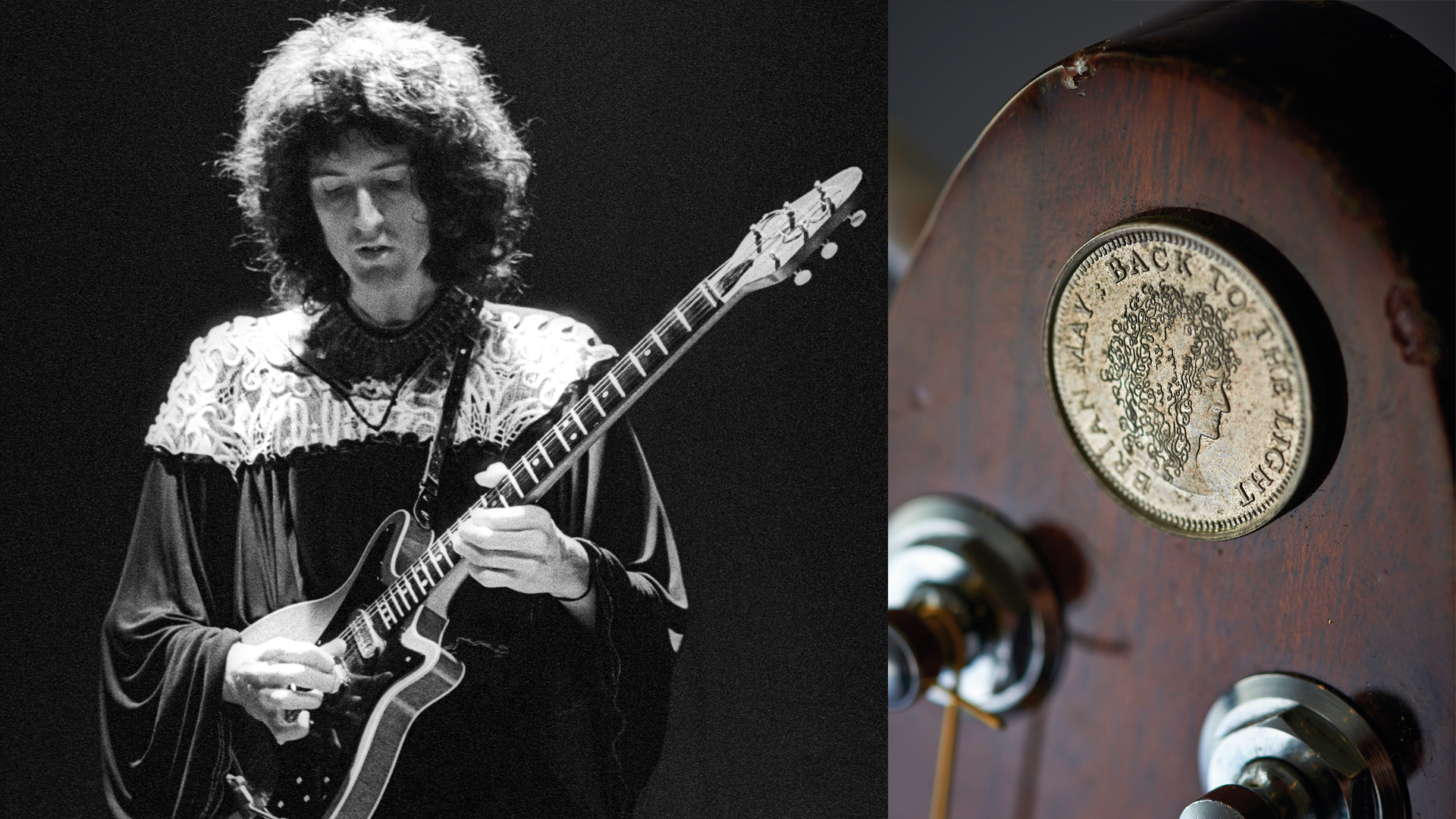“I learned economy from artists like Albert King, for whom one note could tell a whole story”: At 78, guitar legend Robin Trower isn't done evolving, but he always keeps the blues in sight
Teaming up with vocalist Sari Schorr for the R&B-flavored Joyful Sky, the tone king remains – 60 years into his career – creatively restless

The British rock invasion of the 1960s has long come and gone, and precious few insurgents who led the charge have endured (or even survived). Robin Trower
is an exception.
The dauntless guitarist has thrived, in large part because he has evolved artistically. There was his tenure with the beat group the Paramounts, who had a 1964 hit with a cover of Poison Ivy and opened for the Beatles on a U.K. tour. There was, of course, his stint with progressive-rock forerunners Procol Harum and, beginning in 1973, the Robin Trower Band, in which he plied the signature brand of blues rock heard on his landmark 1974 album, Bridge of Sighs. More recently, he ventured into funk with the 2021 release United State of Mind.
Ever seeking new horizons, Trower recently undertook a new adventure with Joyful Sky, a collection of 10 songs on which the “architect of British blues” joins forces with vocalist Sari Schorr for a rousing set of R&B.
“Over a year ago, my manager asked me to consider writing for Sari, whom I had never heard,” Trower explains. “He sent me some tracks, and her voice knocked me out. I made a completely new arrangement for her of I Will Always Be Your Shelter, a song I had already recorded.”
The guitarist realized that working with Schorr required that he depart from a songwriting habit that dates back to his time in Procol Harum. “I started concentrating on composing for the guitar,” he says. “For many years I’ve been playing and bending strings – which is a big part of my style – in my standard keys, such as B, E, and C#.
“With Sari, I was challenged to write in completely different keys, and this brought out different sides of my arranging. I’ve definitely diverted onto a new path with her. While some of the writing was from sessions for my previous album, No More Worlds to Conquer, I did write five songs specifically for her: Joyful Sky, Change It, Need for You, Flatter to Deceive, and I’ll Be Moving On. That last one is my favorite, because it combines rock and roll, blues, and R&B.”

One thing that did not change was Trower’s choice of gear, which he says is “pretty much the same all the time. I played my own signature model Stratocaster set that Fender built to my specification. I’ve got a few and always use one or two. I also always use a combination of two Marshall amps; I’ve got Bluesbreakers – a 50-watt [1987X] and a 100-watt [JCM800 2203]. And I use Fulltone pedals that Mike Fuller has supplied over the years. The first one he gave me was a prototype from the early ’90s. I’ve been using them a long time.”
Unlike his last two albums, on which Trower used computer drums, Joyful Sky features his longtime drummer, Chris Taggart. Trower himself handled bass duties, playing a Fender Precision. “I always work out the bass arrangements in tandem with the guitar,” he explains. “The guitar part always comes first, and I build it up from there.”
And while Joyful Sky has an R&B flavor, Trower hasn’t fully lost sight of his blues roots.
“Traditional blues is very deep,” he notes. “I’m referring to originals, such as Robert Johnson and Son House. What also excites me is Chicago blues, namely Muddy Waters and Howlin’ Wolf, whose soulful and atmospheric Smokestack Lightning has fed into my writing. B.B. King Live at the Regal, James Brown Live at the Apollo and Jimi Hendrix’s Band of Gypsys – which had a nice rhythm-and-blues flavor to it – have also crept into my art.
“I learned economy from artists like Albert King, for whom one note could tell a whole story. Additionally, Elvis’s guitarist, Scotty Moore, inspired me to play in the first place. I also admired Oscar Moore, guitarist with Nat [King] Cole’s Trio.”
The only direction I have is to keep writing good material and making good tracks
There are some nostalgic hints within Joyful Sky. The Circle Is Complete contains a riff vaguely reminiscent of that in Aqualung by Jethro Tull, for whom Procol Harum regularly opened. Trower’s extended solo is the track’s highlight.
”I love anything involving a lot of lead guitar,” he says, to the surprise of nobody. “Initially, I thought this could be the music for a film’s opening credits, because of its great cinematic atmosphere. I scored an independent film some years ago, and I wouldn’t mind attempting that again.”
Keeping with the film-music vein, several tracks, including I’m Moving On and Burn, have a pulsating drive that recalls John Barry’s James Bond Theme – which is not surprising since Trower ranks Barry as one of the great film composers. “One interviewer said the album is a hearkening back to the ’70s,” he says. “That’s not a bad thing. If it appeals to the listener in that way, I’m happy.”
This far into his career, Trower has many years of experience to draw on, and he reveals that several tracks – including The Distance, Peace of Mind, and Need for You – are autobiographical.
”They’re about my youth and what it looks like now as I peer back,” the 78-year-old says. “Many of my lyrics are about myself and my thoughts about the world. Essentially, I’m an optimist. The song Joyful Sky expresses my thoughts about this era. I feel that we’re living in disturbed times. It’s easy to get depressed about it if you focus on it too much. But there’s beauty in the world, and I think you’ve just got to go looking for it.”

Personal responsibility is likewise the message in Change It – “It’s about facing
up to where you went wrong and moving forward,” he explains. Flatter to Deceive, meanwhile, “bemoans the frightening state of celebrity today, with social media and people being famous for being famous,” he says. “However, there is a living to be made out of it, and I can’t blame people for grabbing it.”
As for Trower’s own career, he’s already thinking about his next album project. “I’ve got 12 tracks in the can,” he reveals. “I thought I had finished it six weeks ago, but since then I’ve written additional material, which I’m going to cut and may replace that initial bunch with some of these new tracks. I plan a release at the end of 2024.
“For that matter, I’ve also written, produced and performed three tracks – in a similar vein to those on Joyful Sky – for Sari’s new album. Basically, there’s not a planned direction I’m going in. There’s no such thing, as far as I’m concerned. The only direction I have, really, is to keep writing good material and making good tracks.”
- Joyful Sky is available now.
Get The Pick Newsletter
All the latest guitar news, interviews, lessons, reviews, deals and more, direct to your inbox!
"I thought, 'Jeez, how the hell did he do that?'" Phil Manzanera on the tone, tuning and technique of his teenage friend David Gilmour
“I felt so crestfallen. I wanted to throw my guitar away.” Alex Lifeson on the gig that made Rush feel like they’d made it — and how one audience member brought them crashing down to Earth










